
Detroit police chief says 'poor investigative work' led to arrest of Black mom who claims facial recognition technology played a role
Detroit's police chief on Wednesday blamed "poor investigative work," not the use of facial recognition technology, for the arrest of a Black mother who claims in a lawsuit that she was falsely arrested earlier this year while eight months pregnant.
2023-08-10 12:27

Biden Narrows China Investment Order as US Seeks Better Ties
President Joe Biden imposed limits on US investments in China as part of a push to restrict the
2023-08-10 05:58

Congresswoman Waters 'deeply concerned' about PayPal's stablecoin launch
Democrat Congresswoman Maxine Waters said on Wednesday she was "deeply concerned" about payment giant PayPal launching its own
2023-08-10 02:20
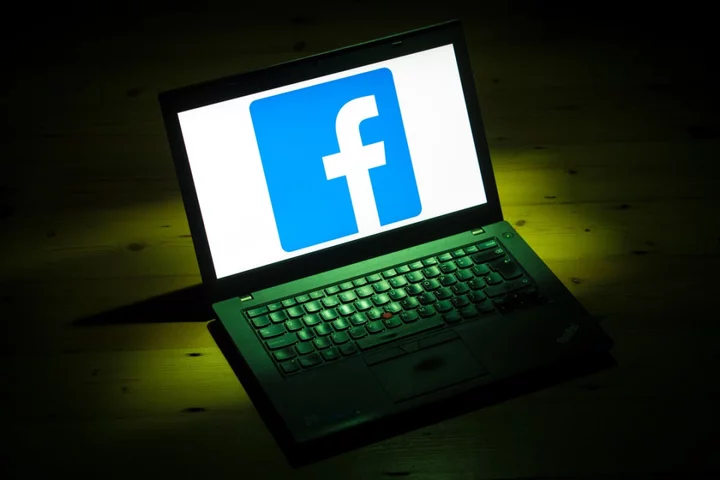
Oxford scientists find no evidence to suggest Facebook not good for wellbeing
There is no evidence to suggest using Facebook is detrimental to wellbeing, Oxford scientists have said, challenging the view that the social media platform is linked to psychological harm. Researchers from the University’s Oxford Internet Institute analysed data from nearly a million people across 72 countries over 12 years – in the largest study of its kind – to understand more about the impact of Facebook on wellbeing. Professor Andrew Przybylski, who co-led the research published in the journal Royal Society Open Science, said: “We examined the best available data carefully – and found they did not support the idea that Facebook membership is related to harm – quite the opposite. “In fact, our analysis indicates Facebook is possibly related to positive well-being.” The research looked at Facebook data from 2008 to 2019, going back to when the platform was in its early stages. “We examined 72 countries’ per capita active Facebook users in males and females in two age brackets, 13-34 years and 35+ years,” the researchers said. The results also showed the association between using Facebook and wellbeing was slightly more positive for males as well as for younger people. Writing in the research paper, the authors said: “Although reports of negative psychological outcomes associated with social media are common in academic and popular writing, evidence for harms is, on balance, more speculative than conclusive.” Professor Matti Vuorre, also of the Oxford Internet Institute, who co-led the study, said: “Our findings should help guide the debate surrounding social media towards more empirical research foundations. “We need more transparent collaborative research between independent scientists and the technology industry to better determine how, when and why modern online platforms might be affecting their users.” Commenting on the study, Peter Etchells, professor of psychology and science communication at Bath Spa University, said: “This is a fascinating study that attempts to link Facebook uptake with measures of mental wellbeing in a broad-strokes manner, using data from over 70 countries. “Contrary to popular sentiment, the researchers didn’t find a negative association between the two; instead, it was generally the case that there were positive associations between country-level Facebook uptake and mental wellbeing. “To my mind, the value in this study lies in proof of principle – it demonstrates that it’s possible to leverage industry data to address meaningful questions about how digital technology interacts with our mental health.” But Prof Etchells said there were some caveats associated with the findings – which the study authors have addressed. He said: “This is a descriptive study, and as such cannot tell us anything about causation – that is, we don’t know how, if, or to what extent, changes in Facebook adoption drive changes in mental wellbeing. “Wellbeing is a complex phenomenon, and even in the context of social media use, we need to be careful drawing any firm conclusions by looking at how people use a single platform such as Facebook.” Read More Move fast and beat Musk: The inside story of how Meta built Threads Japan's tech investor SoftBank trims losses and promises offensive turnaround Chatbots sometimes make things up. Not everyone thinks AI's hallucination problem is fixable Charity boss speaks out over ‘traumatic’ encounter with royal aide Ukraine war’s heaviest fight rages in east - follow live
2023-08-09 11:59
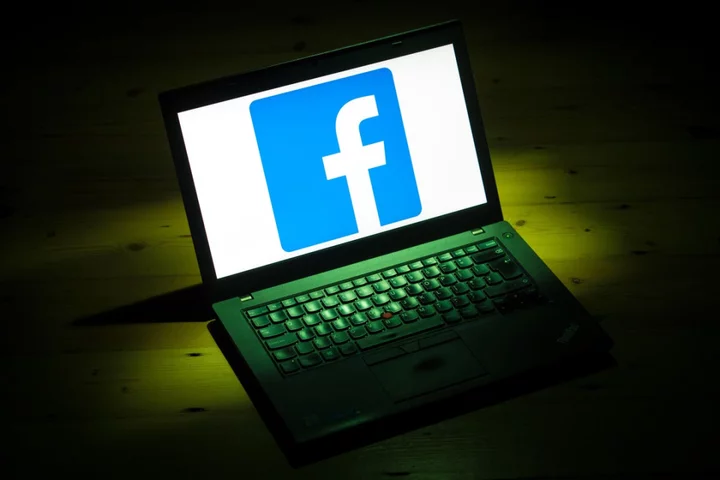
No evidence to suggest Facebook not good for wellbeing, Oxford scientists say
There is no evidence to suggest using Facebook is detrimental to wellbeing, Oxford scientists have said, challenging the view that the social media platform is linked to psychological harm. Researchers from the University of Oxford’s Oxford Internet Institute analysed data from nearly a million people across 72 countries over 12 years – in the largest study of its kind – to understand more about the impact of Facebook on wellbeing. Professor Andrew Przybylski, who co-led the research published in the journal Royal Society Open Science, said: “We examined the best available data carefully – and found they did not support the idea that Facebook membership is related to harm – quite the opposite. “In fact, our analysis indicates Facebook is possibly related to positive well-being.” The research looked at Facebook data from 2008 to 2019, going back to when the platform was in its early stages. “We examined 72 countries’ per capita active Facebook users in males and females in two age brackets, 13-34 years and 35+ years,” the researchers said. The results also showed the association between using Facebook and wellbeing was slightly more positive for males as well as for younger people. It was generally the case that there were positive associations between country-level Facebook uptake and mental wellbeing Prof Peter Etchells Writing in the research paper, the authors said: “Although reports of negative psychological outcomes associated with social media are common in academic and popular writing, evidence for harms is, on balance, more speculative than conclusive.” Professor Matti Vuorre, also of the Oxford Internet Institute, who co-led the study, said: “Our findings should help guide the debate surrounding social media towards more empirical research foundations. “We need more transparent collaborative research between independent scientists and the technology industry to better determine how, when and why modern online platforms might be affecting their users.” Commenting on the study, Peter Etchells, professor of psychology and science communication at Bath Spa University, said: “This is a fascinating study that attempts to link Facebook uptake with measures of mental wellbeing in a broad-strokes manner, using data from over 70 countries. “Contrary to popular sentiment, the researchers didn’t find a negative association between the two; instead, it was generally the case that there were positive associations between country-level Facebook uptake and mental wellbeing. “To my mind, the value in this study lies in proof of principle – it demonstrates that it’s possible to leverage industry data to address meaningful questions about how digital technology interacts with our mental health.” But Prof Etchells said there were some caveats associated with the findings – which the study authors have addressed. He said: “This is a descriptive study, and as such cannot tell us anything about causation – that is, we don’t know how, if, or to what extent, changes in Facebook adoption drive changes in mental wellbeing. “Wellbeing is a complex phenomenon, and even in the context of social media use, we need to be careful drawing any firm conclusions by looking at how people use a single platform such as Facebook.” Read More Charity boss speaks out over ‘traumatic’ encounter with royal aide Ukraine war’s heaviest fight rages in east - follow live Ozzy Osbourne PlayStation tweet which failed to reveal link to Sony banned Harry and Meghan ring young online innovators after funding awards James Bulger’s mother condemns ‘disgusting’ AI clips on TikTok of murdered son
2023-08-09 11:59
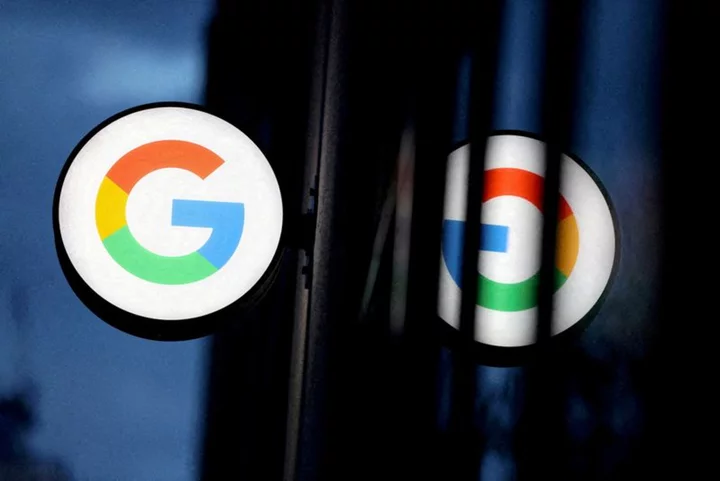
Google makes emergency request to block Texas antitrust lawsuit move
By Diane Bartz WASHINGTON Google asked a U.S. appeals court in New York on Tuesday to pause a
2023-08-09 05:27

Black mom sues city of Detroit claiming she was falsely arrested while 8 months pregnant by officers using facial recognition technology
A Black mother is suing the city of Detroit and a Detroit Police Department detective after she was falsely arrested while eight months pregnant by officers using "an unreliable facial recognition match," a federal lawsuit filed Thursday says.
2023-08-08 06:49

Scientists discover skull that has never been seen before
Scientists have discovered an ancient skull in China, like no other they've seen before. The 300,000-year-old child skull was first discovered in Hualongdong back in 2019 alongside other fossil remains. The Chinese Academy of Sciences (CAS) have struggled to match them to a known lineage. The discovery left researchers baffled as it did not resemble Neanderthals or Denisovans, according to Science Alert. It led them to believe we are either missing a branch from the human family tree or need to add to it. While the skull had similarities to early modern humans, there is a lack of chin and was likened to an extinct species of human in Asia known as a Denisovan. This shape has "never been recorded in late Middle Pleistocene hominin fossil assemblages in East Asia," scientists said in a recent analysis. They believe the remains, known in the science world as HDL 6, could possibly be a combination of modern human and unknown hominin that existed in China, according to the outlet. Sign up for our free Indy100 weekly newsletter In other scientific news, archaeologists are too afraid to open the tomb of Qin Shu Huang, who ruled from 221 BC to 210 BC. The tomb is guarded by a terracotta army of soldiers and horses and was found by farmers back in 1974 in the Shaanxi province of China. Not only do archaeologists believe it will cause damage, but there are rumours of deathly booby traps that could kill curious intruders, according to IFL Science. Writings by Chinese historian Sima Qian 100 years after Qin Shu Huang's death claim "Palaces and scenic towers for a hundred officials were constructed and the tomb was filled with rare artifacts and wonderful treasure." He continued: "Craftsmen were ordered to make crossbows and arrows primed to shoot at anyone who enters the tomb. Mercury was used to simulate the hundred rivers, the Yangtze and Yellow River, and the great sea, and set to flow mechanically." Have your say in our news democracy. Click the upvote icon at the top of the page to help raise this article through the indy100 rankings.
2023-08-08 00:23

Nuclear fusion milestone achieved in huge boost for near-limitless clean energy
Scientists have achieved a net energy gain in nuclear fusion for the second time, marking major progress towards realising the potential of the near-limitless energy source. A team at the Lawrence Livermore National Laboratory in California, who first achieved the feat last December, claimed to have passed a new milestone with fusion ignition by producing even greater energy output than the original experiment. The nuclear fusion process has been described as the “holy grail” of clean energy, as it requires no fossil fuels and leaves behind no hazardous waste. Instead it mimics the natural reactions that occur within the Sun, though harnessing its potential has puzzled scientists since the 1950s. Achieving nuclear fusion ignition is a crucial step towards building commercial power stations, though the technology needs to be significantly scaled up from the current experiments for it to be a viable energy source. The first ever successful fusion energy gain experiment on 5 December, 2022, used lasers to fuse two light atoms into a single one, releasing 3.15 megajoules of energy from 2.05 megajoules of input. Researchers described the milestone as “one of the most significant scientific challenges ever undertaken by humanity” that would “enable the next steps toward clean fusion energy for the future”. Scientists that were not involved in the fusion experiments said the advance had profound implications for the future of the planet. “We are witnessing a moment in history: controlling the power source of the stars is the greatest technological challenge humanity has ever undertaken,” said physicist Arthur Turrell. “This experimental result will electrify efforts to eventually power the planet with nuclear fusion – at a time when we’ve never needed a plentiful source of carbon-free energy more.” A spokesperson for the Lawrence Livermore National Laboratory said the final results of the latest experiment are still being analysed. The lab plans to present the results at upcoming scientific conferences and in peer-reviewed journals. Several companies are already investing heavily in nuclear fusion, with Microsoft making the world’s first purchase agreement earlier this year. The US tech giant made the deal with Helion Energy, which aims to set up a nuclear fusion power plant within the next five years despite the challenges remaining to make it commercially viable. Helion chief executive David Kirtley said at the time: “We still have a lot of work to do, but we are confident in our ability to deliver the world’s first fusion power facility.” Read More Superconductor breakthrough could represent ‘biggest physics discovery of a lifetime’ – but scientists urge caution Microsoft makes world first nuclear fusion energy deal Zuckerberg says he is ‘ready today’ but ‘not holding breath’ for cage fight with Musk Musk pledges to fund legal bills of X users ‘unfairly treated’ by employers for posts Scientists want to hack the planet to cool it down. The consequences could be extreme
2023-08-07 17:58
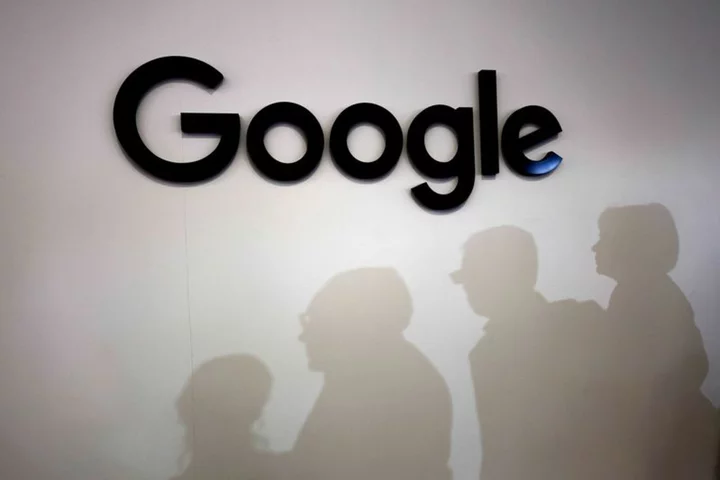
Judge allows key US antitrust Google search claims to go to trial
By David Shepardson and Diane Bartz WASHINGTON (Reuters) -A U.S. judge hearing the Justice Department's antitrust lawsuit accusing Google of
2023-08-05 06:17
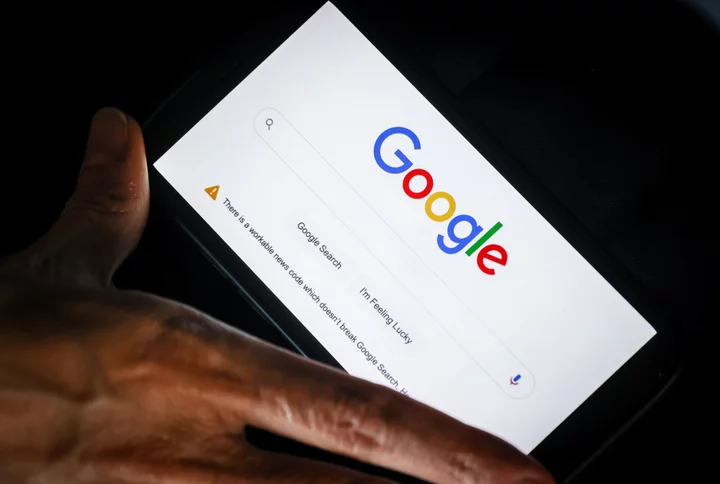
Google Wins Limits to Antitrust Claims at Trial Over Search Deals
Alphabet Inc.’s Google will face a scaled-down antitrust suit over its search business after a federal judge threw
2023-08-05 02:20

Analysis-Superconductor claims spark investor frenzy, but scientists are skeptical
By Stephen Nellis Last week, two papers by South Korean scientists made an extraordinary claim that sparked a
2023-08-04 08:15
